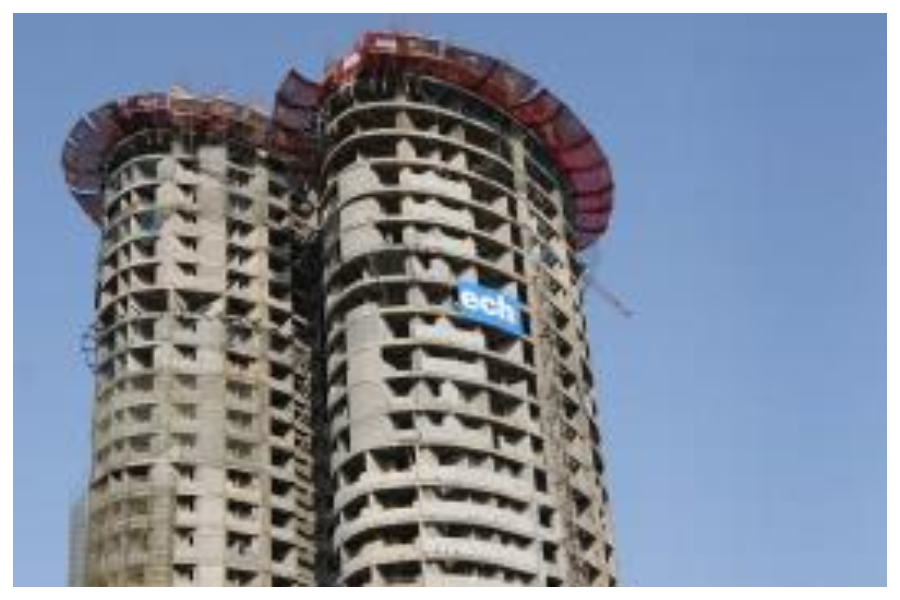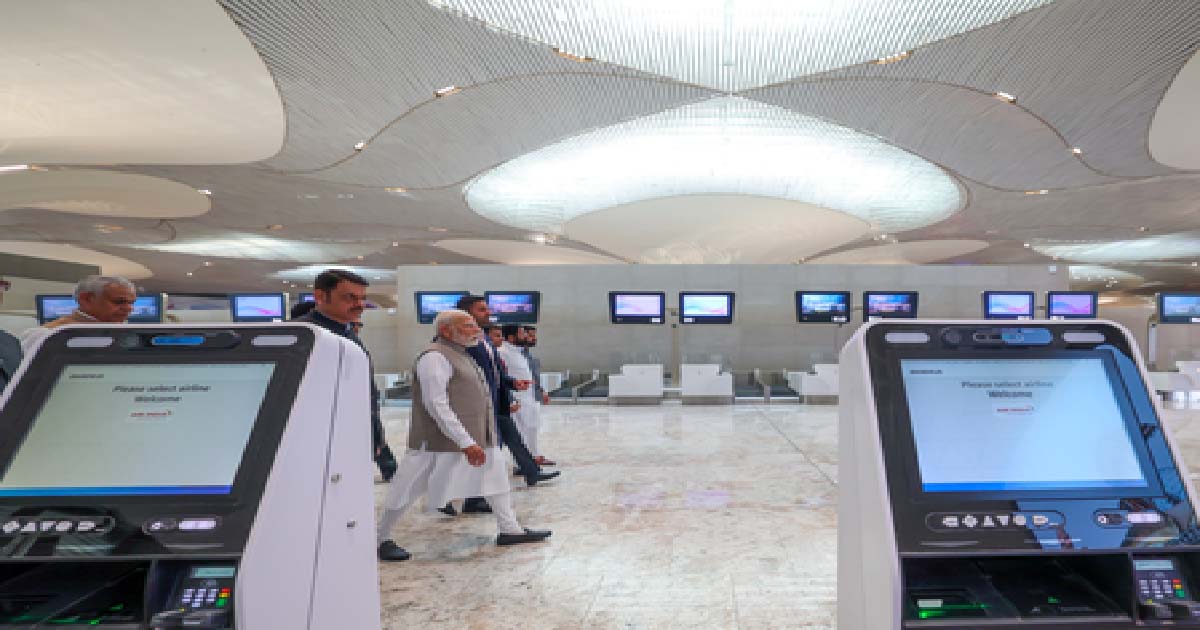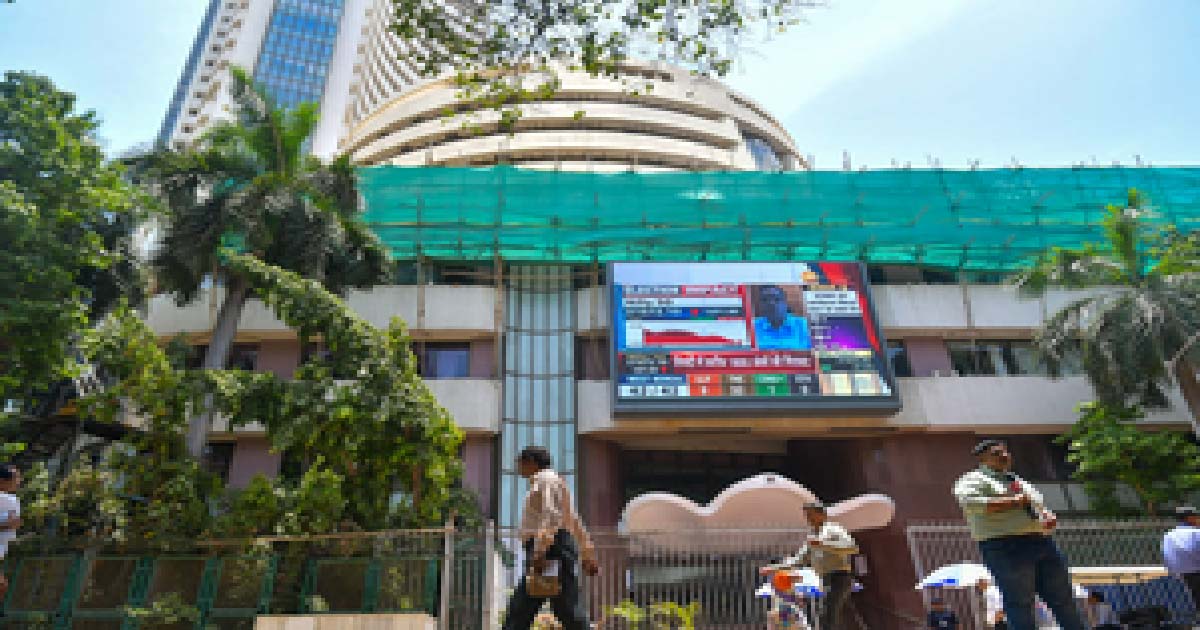Business
Real estate barons betrayed people’s trust, pulled down a growth sector

The Supertech Twin Towers in Noida that are supposed to be decimated next month is representative of the fall of the real estate czars in the recent past, especially in Delhi-NCR.
The real estate landscape in the region suffered multiple blows as leading names of the trade were mired in scandals in the recent past and some of them even landed in jail.
This is a story of how real estate barons have played with the system, betrayed people’s trust and created multiple crises.
Ashutosh Kashyap, Director, Advisory Services, Colliers India pre 2012, said the residential real estate dynamics of NCR were characterised by double-digit capital value appreciation coupled with robust absorption.
On one hand, prospective buyers were in a hurry to buy, apprehensive of price rise, while on the other hand, robust absorption motivated developers to go on a project launch spree.
In the absence of a proper regulatory regime (such as RERA, which came later), the financial ring-fencing of projects was not proper, which allowed developers to use booking money from one project to acquire more land, which was only based on the underlying premise that the robust absorption will sustain.
“The reason, most of these happened in Noida was because the city offered the option of staggered payment for allotted land. This allowed builders to accumulate and launch more projects in anticipation of robust demand. The residential real estate segment witnessed a prolonged muted period (till 2020-21), especially for the primary market. Most of the developers that built their pipelines on anticipated demand found it difficult to sustain this phase and what we see today is the result of the same,” Kashyap added.
A number of real estate czars have faced enforcement action and some even bankruptcy. This has in turn caused immense despair and hardship for home buyers stuck with incomplete projects having poured in their life savings.
Members of the Chandra family of the Unitech Group are in jail. The Supreme Court on Wednesday asked the Enforcement Directorate (ED) to propose steps to bring back homebuyers money amounting to Rs 5,000 crore diverted to tax havens, which was revealed in a forensic audit.
At the beginning of the hearing, Additional Solicitor General N. Venkataraman, representing the Centre-appointed board of the Unitech, submitted before a bench headed by Justice D.Y. Chandrachud that over a thousand crore is outside the country and some money should come back, which could be utilised for the purpose of construction, and the court should ask ED, what progress has been made so far.
In April last year, the ED attached movable and immovable properties worth over Rs 300 crore in 10 separate cases of money laundering.
The agency had said that Unitech Group had diverted proceeds of crime, which are over Rs 300 crore to Carnoustie Group and in turn, the entities of Carnoustie Group purchased several immovable properties from these funds.
In December 2019, the top court had directed the Centre to take over the management of Unitech by appointing independent directors after a forensic audit revealed that home buyers’ money worth over Rs 5,000 crore had been diverted to tax havens such as Cyprus. The diversion of money affected the completion of at least 74 projects and damaged the interests of nearly 12,000 homebuyers.
Also in jail is the Ambience Group owner Raj Singh Gehlot. An (ED) probe has revealed that the group has not made the obligatory contribution of Rs 462 crore for the construction of a Rs 1,272 crore luxury hotel project at Shahdara in the national capital, violating the loan conditions of a consortium of banks, led by the Jammu & Kashmir Bank.
Business
ED arrests real estate firm MD in PMLA case, accused sent to 14-day custody

New Delhi, Nov 15: The Enforcement Directorate (ED) has arrested Ocean Seven Buildtech Pvt. Ltd. (OSBPL) Managing Director Swaraj Singh Yadav after conducting searches at nine locations across Delhi-NCR and other regions in a money-laundering probe under the Prevention of Money Laundering Act (PMLA), 2002, an agency statement said on Saturday.
The action stems from allegations that Yadav diverted and laundered funds collected from homebuyers across multiple projects, including those under the Pradhan Mantri Awas Yojana (PMAY).
The searches on Thursday led to the recovery of Rs 86 lakh in cash, suspected to be proceeds of crime, along with incriminating documents and digital evidence.
According to the ED, Yadav orchestrated a large-scale diversion of homebuyer funds through fraudulent cancellation and resale of units at inflated prices, cash-based premiums collected outside banking channels, and misuse of escrow accounts.
He allegedly routed substantial sums into shell entities and concealed cash proceeds with relatives, the ED statement said.
Investigators also found a pattern of rapid liquidation of assets held personally and through company entities in Gurugram, Maharashtra, and Rajasthan, which the agency believes was intended to secure illicit gains and evade legal scrutiny.
His wife and children have already relocated to the United States, the probe revealed.
The agency said Yadav operated a dual-payment mechanism in the resale of PMAY flats and even in the sale of parking spaces — routing only nominal amounts through banks while collecting the bulk in cash. These activities form part of a wider probe linked to multiple FIRs alleging cheating, forgery, and other predicate offences.
Following his arrest, Yadav was produced before the Court of ASJ-06 at Patiala House Courts on Friday, in compliance with Supreme Court directions.
After detailed submissions from both sides and a pass-over granted to allow him legal assistance, the court sent him to ED custody for 14 days, until November 28.
The agency has been directed to produce him before the court at 2 p.m. on the date of expiry of remand.
The ED said it is pursuing further investigation to trace, freeze, and attach assets acquired from the laundered funds, to ensure recovery and restitution to affected homebuyers.
Business
IndiGo to start flights from Navi Mumbai International Airport from Dec 25

Mumbai, Nov 15: Low-cost airline IndiGo on Saturday announced flight operations from the newly-opened Navi Mumbai International Airport (NMIA) starting December 25, connecting the airport to 10 cities across the country.
IndiGo will connect the future-ready airport to 10 cities, including Delhi, Bengaluru, Hyderabad, Ahmedabad, Lucknow, North Goa (Mopa), Jaipur, Nagpur, Cochin, and Mangalore, the airline said in a statement.
The airline said it plans to expand operations at NMIA progressively by adding direct routes to more destinations in due course.
NMIA, the second airport in the Mumbai metropolitan area, is designed to complement Chhatrapati Shivaji Maharaj International Airport and meet growing demand for air travel from India’s financial capital.
NMIA is expected to enhance regional connectivity and support economic development in western India due to its strategic location.
By enhancing regional connectivity and supporting economic development in western India, the launch of IndiGo’s operations will connect the airport to its vast domestic network of 95 airports across the country, it added.
The Navi Mumbai International Airport was inaugurated by Prime Minister Narendra Modi last month, as a major achievement in India’s economic development and “a symbol of Bharat’s aspirations”.
PM Modi said that Mumbai welcomed its second international airport, marking a significant milestone in its journey to becoming Asia’s premier connectivity hub. “Through this new airport, the farmers of Maharashtra will be able to connect with supermarkets in Europe and the Middle East as well,” he observed.
NMIA will ease congestion at Chhatrapati Shivaji Maharaj International Airport and significantly increase India’s aviation capacity.
The Navi Mumbai International Airport Private is designed to accommodate both domestic and international passengers, featuring state-of-the-art facilities. It includes a 3,700-metre runway capable of handling large commercial aircraft, modern passenger terminals, and advanced air traffic control systems.
Business
Stock markets end week on a strong note as NDA secures landmark win in Bihar

Mumbai, Nov 15: Indian equity markets ended the week on a strong note, with benchmark indices gaining on the resolution of the US government shutdown, supported by strong domestic fundamentals, better-than-expected Q2 earnings, easing inflation and NDA’s historic victory in Bihar, according to analysts.
Record-low October inflation reinforced expectations of an RBI rate cut, adding momentum to domestic equities.
According to Vinod Nair, Head of Research, Geojit Investments Limited, sectoral momentum was broad-based, led by gains in IT, Pharma, healthcare and Auto stocks.
“Toward the week’s close, the NDA’s Bihar election victory bolstered investor confidence, but fading expectations of a U.S. Fed rate cut triggered profit booking in IT stocks, tempering their earlier gains,” he mentioned.
The indices remained under pressure for most of the session on Friday, oscillating between losses and brief recoveries, before a strong late-afternoon rebound pushed them into the green.
Volatility picked up as markets tracked the Bihar election outcome, the day’s key trigger.
Sentiment was also weighed down by weak global cues after Wall Street fell sharply overnight, led by declines in Nvidia and other tech majors as investors dialled back hopes of near-term rate cuts amid lingering inflation worries, according to a note by Bajaj Broking Research.
At close, the Sensex ended 84 points or 0.1 per cent higher at 84,563, while the Nifty finished 31 points up at 25,910. Sectoral trends were mixed, with PSU banks leading gains at 1.17 per cent, followed by firm moves in pharma and FMCG.
Energy and infrastructure saw mild upticks. On the downside, IT declined 1.03 per cent, while auto, metal, and realty ended lower.
Among the broader market space, Nifty Small-cap 100 rose 0.38 per cent, while the Midcap 100 gained 0.08 per cent.
According to analysts, Nifty on the weekly chart has formed a strong bull candle with a higher high and a higher low signaling pullback after two weeks of corrective decline, “in line with our expectations from the key support area of 25,400-25,300”.
Going ahead, bias continues to remain positive and a follow through strength above last month high of 26,100 will open upside towards the previous all-time high of 26,277 in the coming week.
Looking ahead, market direction will hinge on key macro triggers such as India’s PMI data, US jobless claims, FOMC minutes and progress on US–India trade negotiations.
-

 Crime3 years ago
Crime3 years agoClass 10 student jumps to death in Jaipur
-

 Maharashtra1 year ago
Maharashtra1 year agoMumbai Local Train Update: Central Railway’s New Timetable Comes Into Effect; Check Full List Of Revised Timings & Stations
-

 Maharashtra1 year ago
Maharashtra1 year agoMumbai To Go Toll-Free Tonight! Maharashtra Govt Announces Complete Toll Waiver For Light Motor Vehicles At All 5 Entry Points Of City
-

 Maharashtra1 year ago
Maharashtra1 year agoFalse photo of Imtiaz Jaleel’s rally, exposing the fooling conspiracy
-

 National News1 year ago
National News1 year agoMinistry of Railways rolls out Special Drive 4.0 with focus on digitisation, cleanliness, inclusiveness and grievance redressal
-

 Maharashtra1 year ago
Maharashtra1 year agoMaharashtra Elections 2024: Mumbai Metro & BEST Services Extended Till Midnight On Voting Day
-

 National News1 year ago
National News1 year agoJ&K: 4 Jawans Killed, 28 Injured After Bus Carrying BSF Personnel For Poll Duty Falls Into Gorge In Budgam; Terrifying Visuals Surface
-

 Crime1 year ago
Crime1 year agoBaba Siddique Murder: Mumbai Police Unable To Get Lawrence Bishnoi Custody Due To Home Ministry Order, Says Report












